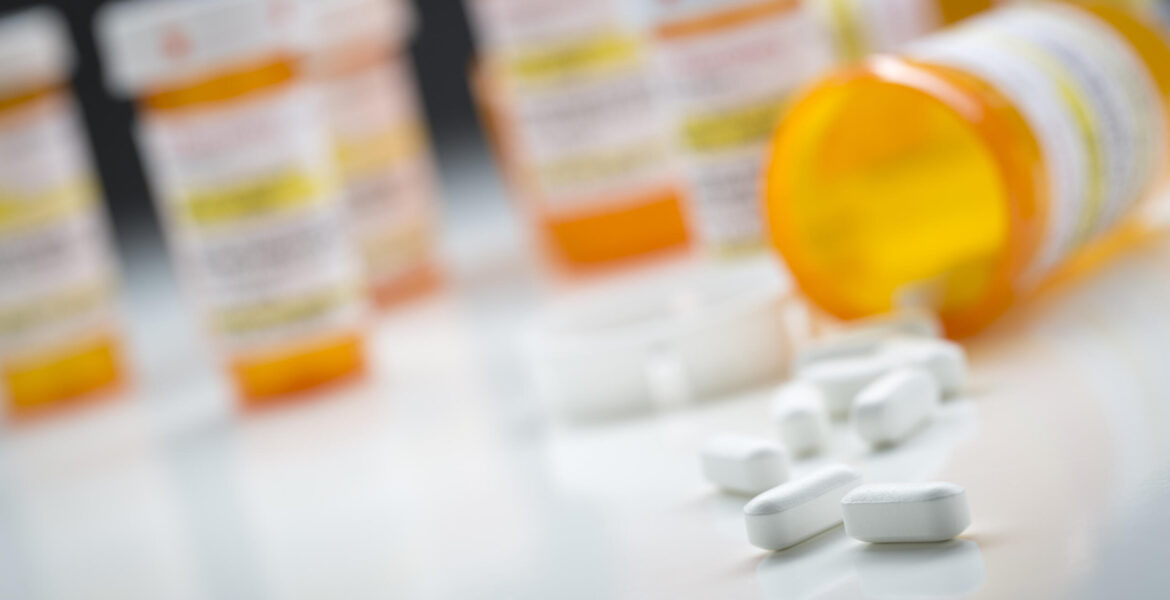What Drugs Are Opioids?

In recent years, our media outlets have been flooded with alarming reports about opioid use and its catastrophic effects on society.
But before we pass judgment, let us pause to ponder: are all opioids deleterious in nature?
Atlantic Recovery Center is a top-rated drug and alcohol treatment center in Davie, Florida. Keep reading to learn what drugs are opioids, the uses for these drugs, and how opioid abuse, overdose, and withdrawal are treated!
What Drugs Are Opioids?
Opioids are a drug class, including prescription painkillers like oxycodone, hydrocodone, and fentanyl, and illegal drugs like heroin.
How Do Opioids Work?
Prescription opioids bind to opioid receptors in the brain and spinal cord, producing pain relief and feelings of euphoria.
Why Are Opioids Used in Health Care?
Drugs that are opioids can be used to treat acute pain (pain from a recent injury) and chronic pain (long-term, persistent pain).
Besides pain management, these opioid medications can also help manage certain medical conditions such as cancer or sickle cell anemia.
Are Opioids Addictive?
While prescription opioids can be effective for managing acute pain or for use in palliative care, they also come with high risk of addiction and overdose.
According to recent statistics, more than 2 million Americans suffer from opioid use disorder, and more than 130 people die daily from opioid-related overdoses.
The Opioid Crisis in America
Several factors have fueled the opioid epidemic in America., including:
- Overprescription of opioids by healthcare providers
- Aggressive marketing by pharmaceutical companies
- The availability of cheap heroin on the black market
Many individuals who become addicted to opioids begin using prescription painkillers before transitioning to heroin due to their lower cost and greater availability.
What Are the Negative Consequences of Using Opioids?
The consequences of opioid abuse are devastating not only for individuals but also for families, communities, and society at large.
Besides drug overdose deaths, opioid addiction can lead to increased rates of infectious diseases like HIV and hepatitis C due to sharing needles and criminal activity such as theft or prostitution to obtain drugs.
What Are Opioid Withdrawal Symptoms?
Withdrawal symptoms from opioids can be highly uncomfortable and even dangerous in some cases. Common symptoms may include:
- Anxiety
- Agitation
- Insomnia
- Muscle aches
- Nausea/vomiting/diarrhea
- Sweating/chills/goosebumps
- Dilated pupils
Which Medications are Prescribed to Manage Opioid Withdrawal?
Several medications can be used to manage withdrawal symptoms associated with opioid use disorder safely:
Methadone
Methadone is a synthetic opioid that acts on the same brain receptors as other types of opioids but produces less euphoria and has a longer duration of action.
Methadone is typically administered orally once per day under close medical supervision.
Buprenorphine
Buprenorphine is a partial agonist at the mu-opioid receptor that produces less respiratory depression than other opioids but still relieves withdrawal symptoms.
It can be administered sublingually or via injection once per day.
Clonidine
Clonidine is not an opioid but a blood pressure medication that reduces anxiety and muscle cramps associated with opiate withdrawal.
How is Opioid Drug Addiction Treated?
In addition to medication-assisted treatment (MAT), behavioral therapies such as cognitive-behavioral therapy (CBT) effectively treat opioid drug addiction by helping individuals learn coping strategies for cravings and triggers.
Opioid abuse is a complex issue with far-reaching consequences for individuals and society.
While many challenges are associated with addressing this epidemic, many promising treatments are available today that provide hope for those struggling with substance use disorders.
If you or someone you know is struggling with addiction or experiencing withdrawal symptoms related to opioids or any other substance, please seek professional help immediately through your healthcare provider or local treatment center.
Remember: recovery is possible!
Atlantic Recovery Center Treats Opioid Addiction in South Florida
Now that you are educated on which drugs are opioids, the sources of addiction, their consequences, and what treatments can help with withdrawal symptoms—it’s time to create a strategy.
At Atlantic Recovery Center in South Florida, we specialize in treating individuals suffering from opioid use disorder.
We offer comprehensive residential treatment services for opioid abuse, such as dual-diagnosis treatment, counseling, and aftercare support.
Our staff of compassionate professionals is dedicated to helping individuals that abuse opioids find a pathway to lasting recovery. Contact us today to learn more about our opioid treatment services. We are here to provide the help you need—so don’t wait any longer!





